
What you paint is a reflection of what you notice, and what you notice is a consequence of your conscious and unconscious visual strategies, some learned and some automatic. In the previous issue's article we looked at how images are constructed in the brain, both from the information that comes from the eyes, and from the predictive models handed down from the brain. We considered how vision is different from the camera and whether artists see differently from other people.
Now let's look at how image processing actually happens in the brain, and how we can recruit our eyes and brains to give us what we need to produce a painting.
TONE AND COLOR ARE PROCESSED SEPARATELY
According to Dr. Margaret Livingstone, the visual brain processes luminance (or tonal information) separately from color information. The two streams originate in the retina, which begins with low-level processing such as recognition of edges and contrasts. The information pathways continue to the optical cortex at the back of the brain. Although there is some crossover and interaction, the two streams-luminance and color-are largely kept separate, from the level of the retina all the way to the higher-level vision centers of the brain.
The area of the brain that interprets tone is several inches away from the area that interprets color, making the experience of tone and color distinct physiological experiences, as distinct as sight and hearing. The color stream is also called the ventral stream or the "what" stream. It is more concerned with recognizing and identifying objects. Color processing through the ventral stream is a capacity that is shared only by higher primates, not the bulk of other mammals.
The difference between these two streams may explain why classically trained artists plan their compositions by solving problems of tonal organization separately from the color arrangement.
This story is from the {{IssueName}} edition of {{MagazineName}}.
Start your 7-day Magzter GOLD free trial to access thousands of curated premium stories, and 9,000+ magazines and newspapers.
Already a subscriber ? Sign In
This story is from the {{IssueName}} edition of {{MagazineName}}.
Start your 7-day Magzter GOLD free trial to access thousands of curated premium stories, and 9,000+ magazines and newspapers.
Already a subscriber? Sign In
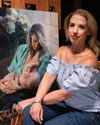
Fresh Eyes
Anna Rose Bain discusses the passions of being an artist and helping students transform their own work
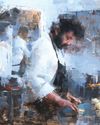
The Next Level
Jacob Dhein uses a wet-into-wet technique to create painterly depictions of a variety of subjects
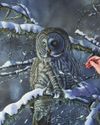
Wild Spirit
Alternating between broad glazes and fine details, Claire Milligan captures the intricacies of the animal kingdom
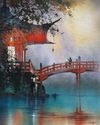
The Bridge Between
Watercolorist Thomas Wells Schaller delves into the nuances of observation and imagination
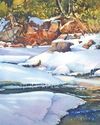
The Color Continuum
Catherine Hearding demonstrates how she utilizes color to enhance the mood of her landscapes
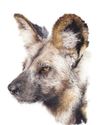
Points of Precision
A strong focal point and attention to detail make Nicola Jane's artwork jump off the page
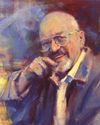
BE YOURSELF
Harley Brown's fascinating things no one else will tell you
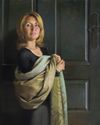
JEFFREY T. LARSON
Expertly Putting the Pieces Together
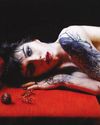
Hot-Blooded
Blending elements of realism and surrealism, figurative artist Anna Wypych’'s paintings are dominated by vivid reds
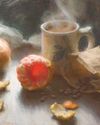
Adam Clague Incandescence
Adam Clague’s masterful understanding of contrast allows him to paint subjects that seem to glow from within